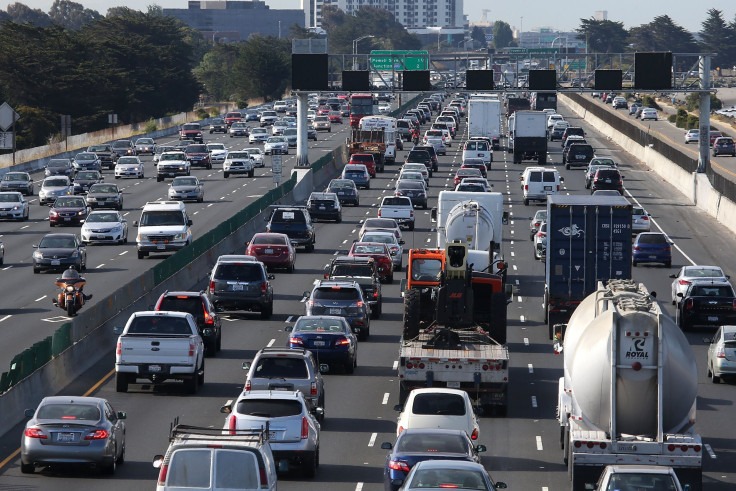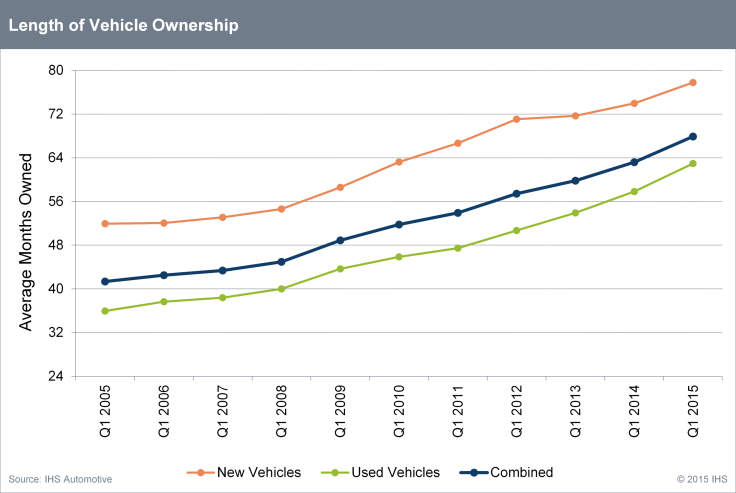American Car Culture In High Gear: US Has A Record Four Cars For Every Five People

If you’re someone who believes American car culture is waning, new data released Wednesday ought to be sobering. Despite all the talk of the sharing economy's affect on car ownership, and anecdotal tales of bike-riding millennials, the country is more car-obsessed than ever.
There are now a record-breaking 257.9 million sedans, trucks and SUVs on U.S. roads. That’s four vehicles for every five people in the U.S. And it excludes motorcycles, big trucks like the F-350 and Ram 2500, and freight haulers.
Industry tracker IHS Automotive has found the average age of a vehicle on U.S. roads has climbed to a record 11.5 years, up from 11.4 years last year and 9.8 years a decade ago. Americans are holding onto cars for longer period of time because improved quality has made vechiles more reliable. The Great Recession helped boost the average vehicle age, too, as cash-strapped car owners squeezed extra years out of their clunkers.
But while cars on U.S. roads are older than they’ve ever been, there are also more of them than ever.
“Registrations for light [vehicles in operation] in the U.S. also reached a record level of 257,900,000,” IHS said in a statement. “That’s an increase of more than 5.3 million (2.1 percent) since last year and the highest annual increase the auto industry has seen in the U.S.”
In the first quarter of the year, the typical American was holding on to his or her new car for the longest time on record, too. The average new car owner will hold on to his or her vehicle for about six-and-a-half years before heading it down to the automotive aftermarket. That’s up 26 months from the first three months of 2006. Used car owners are keeping their vehicles for about two years longer, to 63 months compared to the first quarter of 2006.

The study says the average car in the U.S. will continue to age, to 11.7 years by 2018. The rate will slow down thanks to the rebound in new-auto sales we’ve seen since 2009 when auto sales plummeted to a 27-year-low during the recession, to 10.4 million. Next year is expected to be the seventh consecutive year of growth.
New car sales is expected to grow from 17.1 million next year to 17.4 million in 2016, according to an estimate from Alix Partners, a New York based business management consultancy. From 2017 to 2019 annual sales are expected to decline to 14.9 million in 2019 as part of the normal four-to-five year sales cycle.
© Copyright IBTimes 2024. All rights reserved.





















